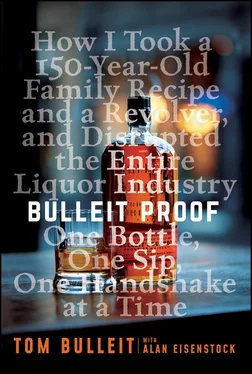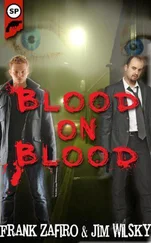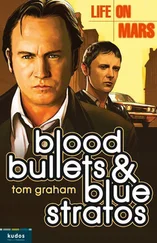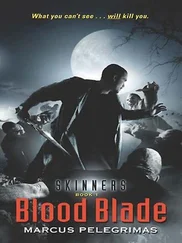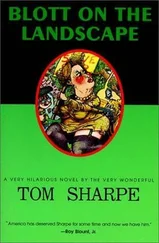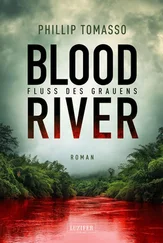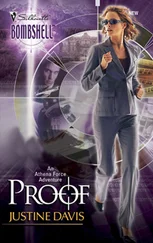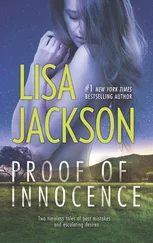“Good. Clearly, you have an appreciation for the best.”
He folds the bar rag into quarters, tosses it aside, picks up the bottle of bourbon, and squints at the label. “Bull-ay?”
“Bull- it ,” I say. “Like what you fire out of a pistol.”
He peers at me dubiously.
“That would be my name,” I say. “Tom Bulleit. And you are?”
“Matt.”
“Pleased to meet you, Matt.” I offer my hand. Matt extends his in return and we shake. My hand disappears inside his palm, which is the size of a catcher’s mitt.
“Same here, Mr. Bulleit.”
“Please. Tom.”
“This your brand, huh?”
“It is.”
Matt nods and considers the bottle.
“Frontier Whiskey,” he murmurs, reading the label, and then slowly wagging his head. “Bourbon’s not really selling, Tom. Everybody’s drinking vodka.”
“I’ve heard. Repeatedly.”
“Sorry,” he says, sliding the bottle back to me.
I don’t budge. I keep my eyes fixed on his. “Here’s the thing.”
I pause.
“Now that we’re on a first-name basis, pretty nearly friends, I need a favor.”
Now he squints at me. “What kind of favor?”
“One sip.”
Matt leans both of his tree-limb sized forearms onto the bar. “I told you. Nobody’s buying bourbon.”
“That’s why I’m asking for a favor. Or maybe it’s a dare. One sip. For the fun of it. For research. For your edification. For future generations. For Mark Twain. Otherwise, I’ll have to come back tomorrow and go through my whole schtick all over again. And neither of us wants that. ”
A sound explodes from Matt that may be a chuckle. An interminable 10 seconds ticks away. Time stops. Matt’s forehead folds in two and then I realize he may in fact be thinking. And then movement. Time resumes. Matt shakes his head, reaches under the bar, and brings out two shot glasses.
“Join me,” he says.
“Thank you,” I say, and pour us each a finger’s worth of bourbon. I raise my glass. “Cheers.”
We clink glasses. Matt swishes the liquid in his mouth, then inhales his shot. After a moment he licks his lips like a bear at a barbecue.
“Damn,” he says, sliding his shot glass toward me. I pour another finger’s worth. He drinks that one faster.
“My,” he says.
“So, just for research, may I interest you in a bottle for your bar?”
“Hell, no,” Matt says. “I’ll take two.”
* * *
Back to Shelbyville.
March 14, 2017.
I stand on the stage in this tent on the dedication of the first Bulleit Bourbon distillery, gripping the podium in front of what feels like an infinity of faces.
I look out at them and I say, “I don’t believe our lives are told in years … or months … or weeks. I believe we live our lives in moments.”
I pause.
“That’s what I remember most,” I say, and that’s what I am about to share.
The moments.
Presume Nothing (“No, This Gun Isn't Loaded”)
I AM THE SON of two fathers, my biological father, the one I never knew but who lives in my heart and my imagination, and my father who adopted me, the one who gave me his heart, his soul, and his name. I know both to be military men, as am I. I know both to be warriors and heroes, and a hero I am not. But I, too, am a warrior, and like my warrior fathers, when I sign up for a mission, I complete it, or die trying. George Gage, my biological father, died in 1944 during his mission at Utah Beach in Normandy. The details are insignificant. His death—and the deaths of the thousands who died with him—is not.
* * *
I remember the smells.
I sit in my highchair at the kitchen table. My mother, Dorothy Bulleit, and my grandmother whom we call Nana, bake constantly—cakes, pies, cookies. As they swirl through the kitchen in a kind of dance, I summon the smell of chocolate chip cookies right out of the oven, resting on a plate just out of my reach. I am not quite two, but in February 1945, my father has gone to war and I am the man of the house.
One day, the doorbell rings. Two emotions, nearly running into each other, cross my mother’s face. First, surprise, because she’s not expecting anyone. She wipes her hands on her apron, opens the front door, and a man hands her a telegram. She closes the door and the second emotion appears. Dread. She tears open the envelope, skims it, and her pounding heart settles. The telegram informs her that her husband—my father—has been slightly injured in battle. My mother has been holding her breath, and only now allows herself to exhale. A month later, she receives a second telegram, a follow-up, informing her that the first telegram was a mistake. What she’d read was untrue. My father had been seriously wounded. That second emotion, dread, reappeared, but this time a third emotion followed—fear.
* * *
Eastern Belgium. January 1945. The Battle of the Bulge.
A five-tank patrol, part of the Timberwolf Division of General Patton’s Third Army, comes upon a full Panzer Division, heavy artillery, and dozens of tanks, maybe close to 100, total. The Sherman Tank gunner has received his orders. His mission. Hold off the Panzer Division until reinforcements arrive.
Thomas Ewing Bulleit, my father, the gunner, swivels the tank’s big gun and blasts into the swarm of converging German tanks. The Panzer tanks return the fire relentlessly, riddling the five American tanks from all sides, from every angle. Inside my dad’s tank, the hammering of the gunfire deafens him as a torrent of bullets rips through the tank’s metal skeleton like it’s made of aluminum. My father, shocked, blinded, blood pouring down his face, pulls himself out of the tank, drops into two feet of snow, and crawls on the ground, away from the massacre. Advancing Allied troops pick him up and bring him to a triage station. Shortly after, the only available surgeon, a dentist, removes his right eye. He spends a year in England, recovering, fighting infections. Finally, he returns home, and after undergoing several operations to reconstruct his face, my dad gives up his career in banking and takes a job as a purchasing agent for Delmonico Foods. Despite horrific migraine headaches from shrapnel lodged in his brain, he never misses a day of work and I never once hear him complain. The Panzer Division assault on his five-tank patrol lasts less than five minutes, but we prevail in the Battle of the Bulge and win the war. My father—soldier, warrior—has completed his mission.
* * *
Lessons taught without words.
As I grow out of my youth and enter my teens, a new relationship with my father forms. He’s no longer my playground chaperone, my bike rider teacher, my evening reader. We remain fishing buddies, though more and more infrequently, the silences between us becoming longer and increasingly acute. I drift into friendships with kids cooler than my parents—all kids are cooler than everyone’s parents—and I discover girls. At home, although something about us has changed, I remain aware of my father as this omniscient, godlike figure, a tall, dapper, well-dressed man in button-down shirts and slacks, never in jeans—even when fishing—a cigarette dangling from the fingers of one hand, a bottle of beer or a glass of bourbon cupped in the other. He’s a quiet man, not unaffectionate, but not what I would call warm. He is, in the best sense, a survivor, of war, of business, of life. At times—too many times—he enters the one bathroom in our house, locks the door, and sighs heavily, the smoke from his cigarette slithering up from the narrow opening between bathroom door and hallway floor. I know he’s closed himself off to try to stifle the debilitating agony of his nearly constant migraines. I can’t imagine that smoking helps his condition, but I tell myself that maybe it somehow lessens his pain. In the mornings, he emerges from the bathroom, sits down for breakfast at 7:00, and leaves in time to make it to work by 8:00. I don’t realize then that I assimilate key life lessons from my father’s simple, consistent behavior. Accept the hand life deals you. Don’t complain. Don’t feel sorry for yourself. Work. Keep moving forward, never stop, never quit. Work.
Читать дальше
